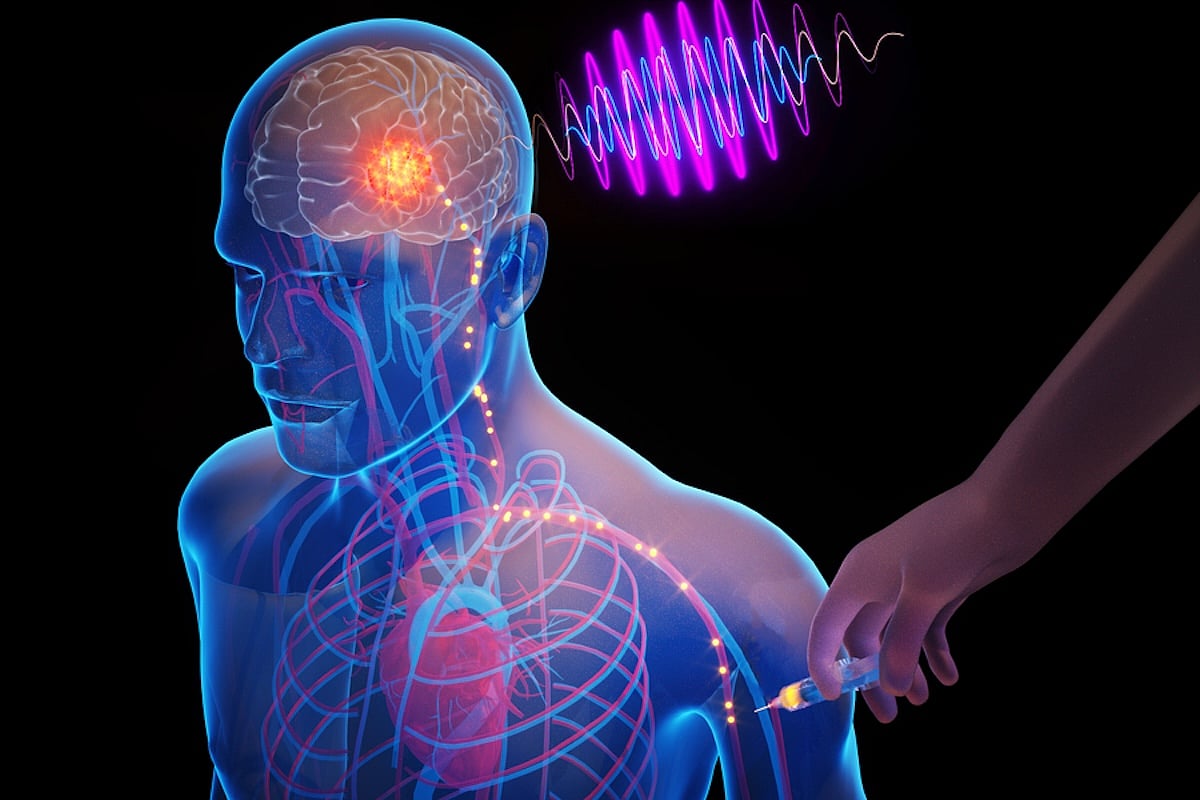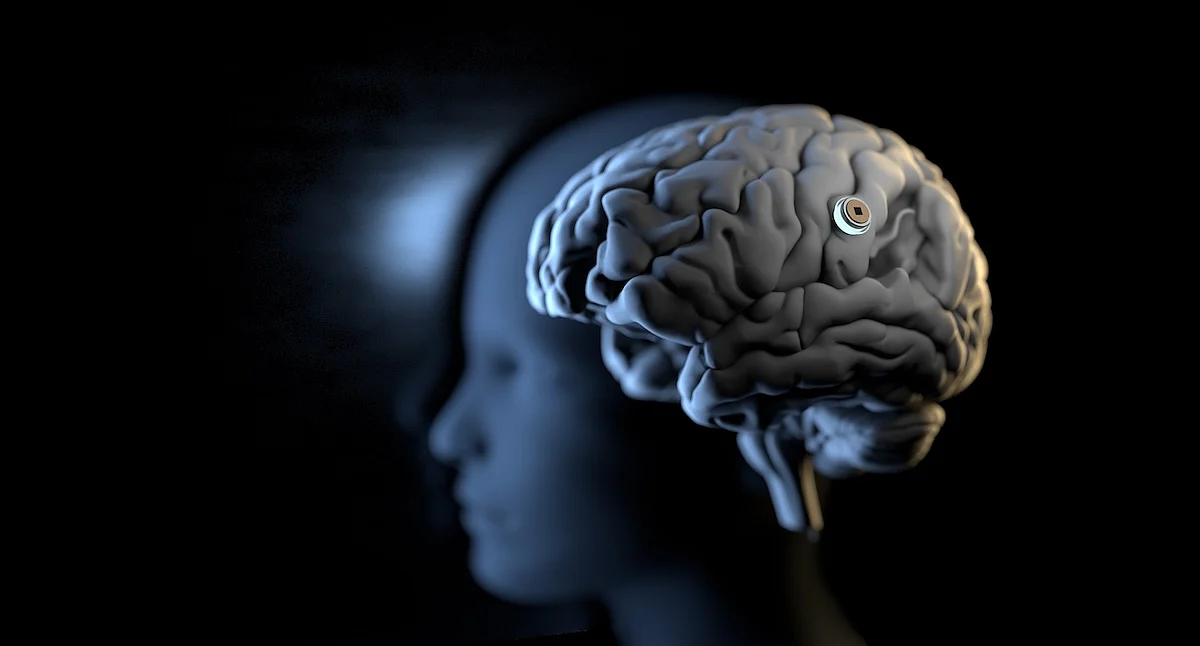Get Healthy!
Results for search "Implants".
Health News Results - 19
Alex Balmes’ symptoms were uncommon for a 32-year-old — irregular heartbeat, fatigue, shortness of breath, bloating, unexpected weight gain.
In fact, these are all classic symptoms of heart failure, but Balmes didn’t give that possibility a...
- Dennis Thompson HealthDay Reporter
- |
- February 3, 2026
- |
- Full Page
Treatment-resistant depression might be eased using an implant that sends electrical pulses to one of the body’s major nerve clusters, a new study says.
The implant, placed under the skin in the chest, sends carefully calibrated electrical pulses to the left vagus nerve — a major conduit between the...
- Dennis Thompson HealthDay Reporter
- |
- January 16, 2026
- |
- Full Page
Imagine a brain implant that could be placed without surgically opening a person’s skull, but instead through a simple injection in the arm.
Massachusetts Intitute of Technology researchers are working on microscopic, wireless electronic chips that can travel through the bloodstream and self-implant in a targeted region of the brain.
In a study with lab mice, ...
- Dennis Thompson HealthDay Reporter
- |
- November 10, 2025
- |
- Full Page
Recruiting more women to clinical trials for heart devices can improve care for all cardiac patients, a new study argues.
A trial investigating the effectiveness of implantable cardiac defibrillators (ICDs) wound up revealing vital information because researchers made sure nearly half the study participants were female, researchers reported Aug. 25 in the journal
For the first time, scientists have created a brain implant that can “hear” and vocalize words a person is only imagining in their head.
The device, developed at Stanford University in California, could help people with severe paralysis communicate more easily, even if they can’t move their mouth to try to speak.
“This ...
- I. Edwards HealthDay Reporter
- |
- August 15, 2025
- |
- Full Page
An under-the-scalp implant can improve monitoring of a person’s epilepsy, giving doctors data they need to improve control over seizures, a new pilot study says.
Epilepsy patients must now keep a diary to track their symptoms.
But these self-observations are only right about half the time, researchers found when they compared patients’ diaries to tens of thousands of hou...
- Dennis Thompson HealthDay Reporter
- |
- August 14, 2025
- |
- Full Page
A newly approved implant appears to slow vision loss from a rare and previously untreatable eye disease, researchers report.
The eye implant, called ENCELTO, gradually releases proteins that protect light-sensing nerve cells against macular telangiectasia (MacTel) type 2, researchers recently reported in the journal
People with heart implants could be in trouble if they’re hit with a powerful handheld taser, a new study says.
A heavy electrical charge delivered by a taser could cause a pacemaker or implanted defibrillator to malfunction, researchers report in the journal Heart Rhythm.
As a res...
- HealthDay Reporter
- Dennis Thompson
- |
- April 9, 2025
- |
- Full Page
A bilingual brain implant has allowed a stroke survivor to communicate in both Spanish and English, scientists report.
Turning to an AI method known as a neural network, researchers trained the patient's implant to decode words based on the brain activity produced when he tried to articulate those words, and then display those words and sentences on a screen.
This method allows t...
- HealthDay Reporter
- Robin Foster
- |
- May 29, 2024
- |
- Full Page
When implanted heart devices get infected, doctors recommend surgery to remove them, but many patients ignore that advice, a new study reveals.
More than eight in 10 patients with an infected implant (such as a defibrillator or pacemaker) choose antibiotic treatment instead, t...
- HealthDay Reporter
- Cara Murez
- |
- April 8, 2022
- |
- Full Page
A handful of "locked-in" amyotrophic lateral sclerosis (ALS) patients can now work a laptop computer using their brain waves, thanks to an implant lodged in a major vein inside their skull.
The implant - a stent lined with 16 miniscule electrodes - is nestled in a vein located near the motor cortex of complete...
- HealthDay Reporter
- Dennis Thompson
- |
- March 30, 2022
- |
- Full Page
A brain implant that helps control severe epilepsy in adults may do the same for children who suffer from unrelenting seizures, new research suggests.
The study is one of the first to examine the responsive neurostimulation (RNS) system in children.
RNS has already been approved b...
- HealthDay Reporter
- Adam Meyer
- |
- January 24, 2022
- |
- Full Page
People who get cochlear implants to treat severe hearing loss may develop new bone growth in the ear -- and it may lessen any hearing they have left, a new study hints.
The researchers found that among 100-plus adults with cochlear implants, two-thirds showed evidence of new bone formation near the implant within four years. And of patients who still had some hearing when they received th...
- HealthDay Reporter
- Amy Norton
- |
- December 8, 2021
- |
- Full Page
People who are prescribed opioid painkillers after receiving a heart pacemaker or defibrillator may be at risk for opioid abuse -- and the higher the initial dose, the greater the risk, according to a new study.
"The significance of this study is to make other electrophysiologists aware that even a low-risk procedure like a pacemaker or a defibrillator can lead to chronic opioid use and t...
- HealthDay Reporter
- Robert Preidt
- |
- December 1, 2021
- |
- Full Page
Claire Wiedmaier experiences epileptic seizures so bad that she's broken teeth while in their grip.
"I have some fake teeth. I broke my two bottom front teeth," said Wiedmaier, 23, of Ankeny, Iowa, who these days can expect to have at least four seizures a month.
Knowing when to expect a seizure would be a big help to her.
"It would be nice to know, because then I could get so...
- HealthDay Reporter
- Dennis Thompson
- |
- November 17, 2021
- |
- Full Page
When people have knee arthritis, cartilage cushioning the joint progressively breaks down. Now an early study hints at a possible solution: replacing it with cartilage from the nose.
Researchers tested the approach in just two patients with knee arthritis, and said much work lies ahead.
But the initial findings, published Sept. 1 in
A first-of-a-kind nerve stimulation treatment for people who have problems moving their arms after a stroke has been approved by the U.S. Food and Drug Administration.
"People who have lost mobility in their hands and arms due to ischemic stroke are often limited in their treatment options for regaining motor function," explained Dr. Christopher Loftus. He is acting director of the FDA's ...
- HealthDay Reporter
- Robert Preidt and Ernie Mundell
- |
- August 27, 2021
- |
- Full Page
A new approach to spinal cord stimulation may drastically reduce chronic back pain, a small pilot study suggests.
The study, of 20 patients with stubborn low back pain, tested the effects of implanting electrodes near the spinal cord to stimulate it with "ultra-low" frequency electrical pulses.
After two weeks, 90% of the patients were reporting at least an 80% reduction in their pa...
- HealthDay Reporter
- Amy Norton
- |
- August 26, 2021
- |
- Full Page
Do you have an implanted defibrillator or pacemaker? Try keeping your smart watch or smart phone a few inches away from them.
New research from the U.S. Food and Drug Administration finds that your phone or watch could interfere with implanted heart devices.
Based on the new findings, heart patients and health care providers should be aware of potential risks, the research team...
- HealthDay Reporter
- Ernie Mundell and Robert Preidt
- |
- August 26, 2021
- |
- Full Page


















